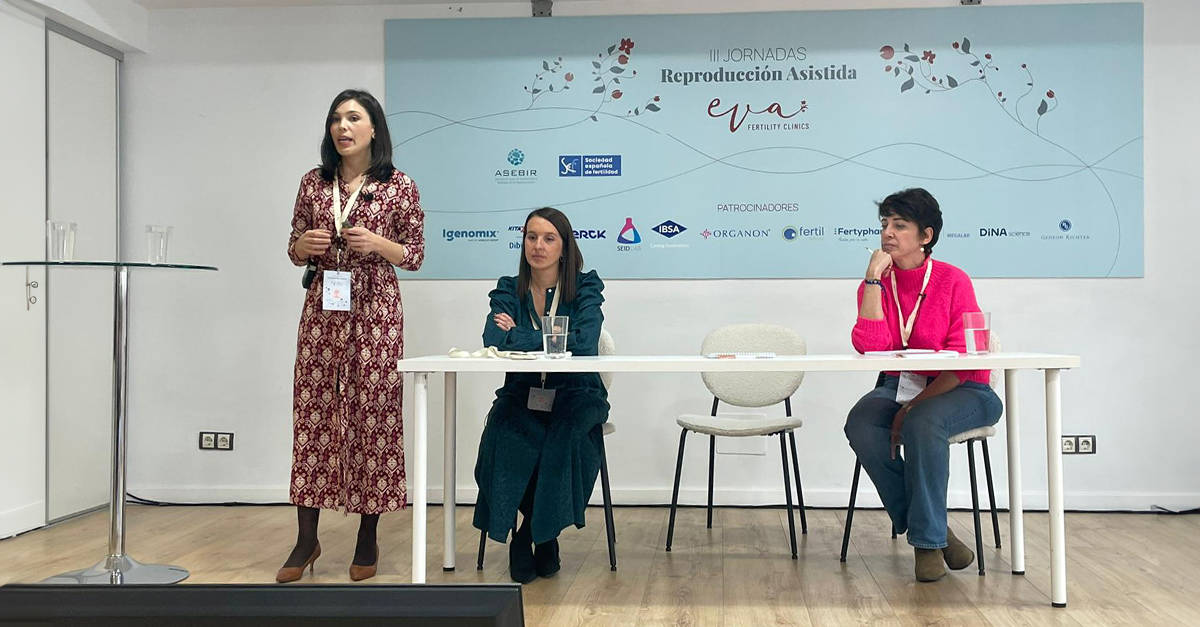Dr Ana Fuentes gives a lecture on the treatment of patients with low ovarian reserve and early ovarian failure.
23-01-2024

Dr Ana Fuentes, gynaecologist specialising in reproductive medicine at Instituto Bernabeu Alicante and the Low Ovarian Reserve Unit Coordinator, participated last Friday 19th January as an expert speaker at the 3rd Assisted Reproduction Conference organised by Eva Fertility Clinics.
In her talk, Dr Fuentes shared the latest advances in the treatment of patients with low ovarian reserve and early ovarian failure. She pointed out that in the last few years, research has been carried out on innovative techniques aimed at reactivating the ovaries, thus opening up new possibilities for women with difficult-to-treat conditions.
“We are exploring new techniques aiming to activate inactive follicles in patients with low ovarian reserve. These follicles, present in all patients, do not respond to conventional drug treatments,” explained Dr Fuentes.
Among the studied strategies are stem cell therapy, ovarian cortex fragmentation and the use of platelet-rich plasma. The first two, according to Dr Fuentes, could offer hope for young patients with ovarian failure or early menopause, although she warned more studies are needed to support the preliminary results. “These techniques are promising, but we are still in the early stages of research. We need more time and cases to conclusively prove that the positive results are due to these treatments,” she said.
The aim of this technique is to increase the number of eggs in patients with a low response to ovarian stimulation. In fact, there are data suggesting an improved response in certain groups of women when administered as an adjuvant treatment.
“It is essential to emphasise that none of these techniques can improve oocyte quality, which depends primarily on the patient’s age. Therefore, the choice to use these therapies must be individually evaluated, taking into account each patient’s specific characteristics and their potential impact on the final prognosis,” concluded Dr Ana Fuentes.
